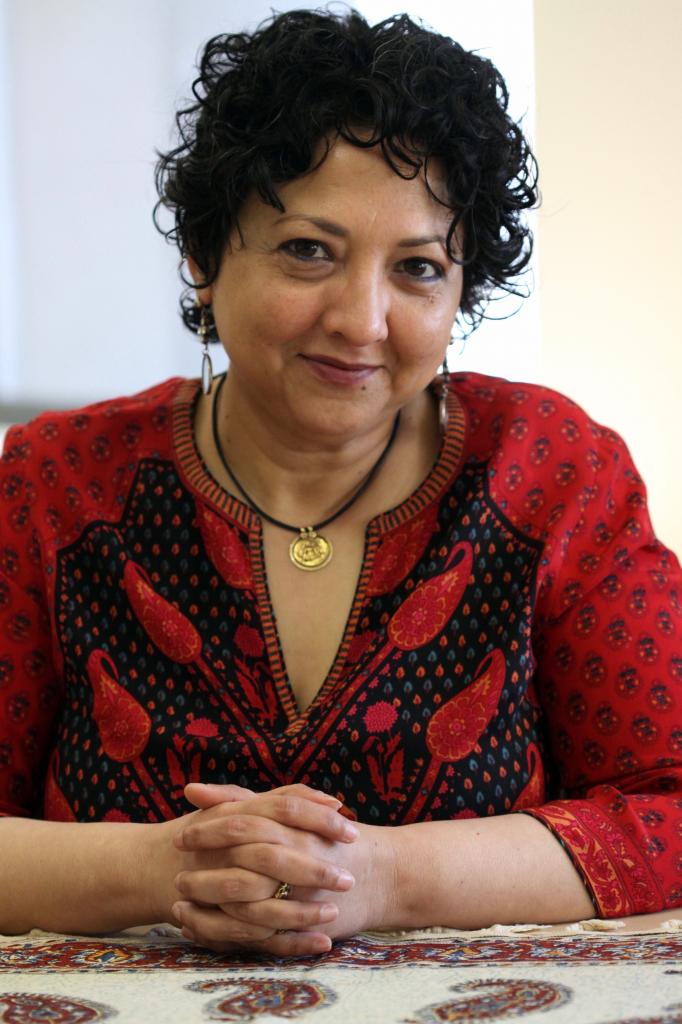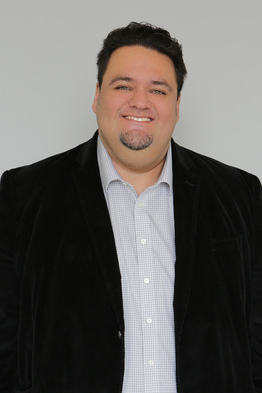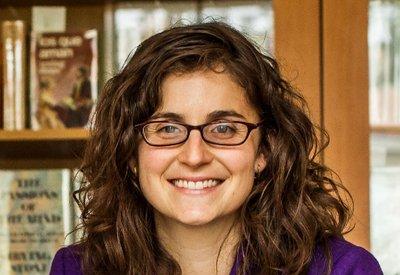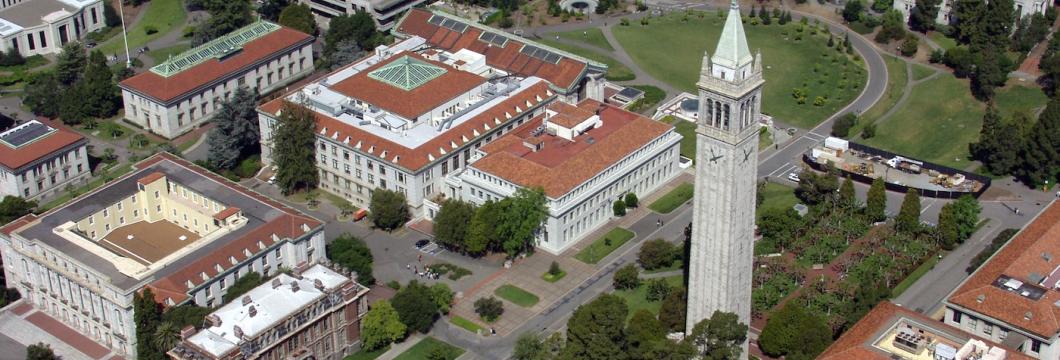On March 13, UC Berkeley campus officials announced that all in-person lectures and classes would be delivered remotely due to the COVID-19 pandemic. Most students returned home, scattering across time zones, while the university’s faculty and graduate instructors — confined to their homes, often with roommates, spouses, and children — scrambled to deliver their classes over the internet.
 But ultimately, the university’s instructors rose to the challenge by working together to overcome technical issues, share lessons learned, and develop innovative solutions to keep students logging in and learning. “Some taught from outside their house because their children were inside,” says Raka Ray, Dean of the Division of Social Sciences. “Others offered endless office hours, just to be there for the students who needed to talk. Others kept consulting each other and asking, how do we create better assignments for students? They began to come up with different ways in which students could still do meaningful work.”
But ultimately, the university’s instructors rose to the challenge by working together to overcome technical issues, share lessons learned, and develop innovative solutions to keep students logging in and learning. “Some taught from outside their house because their children were inside,” says Raka Ray, Dean of the Division of Social Sciences. “Others offered endless office hours, just to be there for the students who needed to talk. Others kept consulting each other and asking, how do we create better assignments for students? They began to come up with different ways in which students could still do meaningful work.”
To honor the efforts of faculty during this challenging time, Ray decided to award the 2020 Social Science Division's Distinguished Teaching and Service Awards to “each and every instructor (Senate and non-Senate alike) active in the division this semester” for having had “to learn entirely new ways of delivering instruction, advising and mentoring, and to deal with student panic, technological glitches and uncertainty.” As explained in an announcement from Ray's office, each department will receive a small sum of money, as well as a framed certificate, and each instructor teaching this semester is entitled to list the recognition under “awards” on their CV.
“Historically, the teaching and service awards have gone to one or two people who have done exceptional work for that year,” Ray explained. “But as I was reviewing the nominations for both awards from the various departments, I was also having conversations with the department chairs about how faculty were doing their best to keep students engaged while giving students the best possible teaching experience. The faculty really rose as one and said, yes, this is difficult. Some of them said, yes, we hate it. But they all said, how do we do our best? And that's why I decided to honor them all. This was really a triumphant moment for the faculty.”
Below are brief profiles of just a few of the hundreds of instructors across the division who overcame adversity to keep UC Berkeley’s tradition of service and teaching excellence alive.
Elena Schneider
 Associate Professor Elena Schneider recalls that she was “crestfallen” when she learned she’d be teaching her classes online. After all, the historian was in the midst of developing a new lecture-based class called “The Atlantic World,” focused on the collision of Africa, the Americas, and Europe from the time of Columbus through the 1800s.
Associate Professor Elena Schneider recalls that she was “crestfallen” when she learned she’d be teaching her classes online. After all, the historian was in the midst of developing a new lecture-based class called “The Atlantic World,” focused on the collision of Africa, the Americas, and Europe from the time of Columbus through the 1800s.
“A new lecture class is an enormous amount of work, so I had to continue to write new lectures and figure out how to do them online,” Schneider says. “I count on students’ bio-feedback when I’m lecturing: I can tell when they are interested, or when they’re starting to fall asleep. I resisted just being a head on a screen. I’m not Max Headroom.”
Once her online lectures started, though, Schneider found creative ways to keep students interested, including creating “tableaus,” for which she donned humorous costumes and used Zoom's virtual backdrop feature. “I’d find something in my house that I could build a costume out of. I kept my video off, and once all the students were online, I would reveal my character.”
For a lecture about piracy, Schneider wore a pirate costume she had purchased for a party years ago. To kick off a lecture about the Haitian Revolution, she posed as a newscaster from the year 1801, with the banner headline, “Who is Toussaint Louverture? White people fear change coming.” On another day, she wore a wetsuit and goggles to pose in an underwater scene with a manatee. “Manatees are part of the history of the Atlantic world; sailors thought they were mermaids, so that was kind of a tie in,” she explains. (All of Schneider's tableaus can be seen on her Twitter page.)
Meanwhile, Schneider arranged for guest speakers to virtually speak to her class, and when she needed access to books she could not access in her locked-up office, she used “academic Twitter” to enlist historians around the world to scan copies from their own collections. She also regularly sent anonymous polls to get a read on how her students were faring. “I got a little bit of a window to how chaotic their lives were,” she said. “I admitted to the students that this was hard, and I think they appreciated my humanity. And they told me how it was hard for them.”
Kevin S. Weiner
 For Kevin S. Weiner, Assistant Professor in the Department of Psychology and the Helen Wills Neuroscience Institute, part of the challenge of working from home was finding a location where he could deliver an effective lecture.
For Kevin S. Weiner, Assistant Professor in the Department of Psychology and the Helen Wills Neuroscience Institute, part of the challenge of working from home was finding a location where he could deliver an effective lecture.
“To make sure our voices weren’t competing over our respective Zoom calls, my partner and I determined our work from home locations using a very sound method: rock, paper, scissors,” says Weiner, whose courses focus on human neuroanatomy and brain imaging. “I started the first lecture by saying, ‘Welcome to Human Neuroanatomy, from Kevin’s basement. I’m Kevin, and this is my basement.’ You have to have fun with it and just recognize these are very odd circumstances.”
Finding it awkward to sit while teaching, Weiner cobbled together a makeshift podium that allowed him to remain standing. “My best attempt at generating a podium was putting a bedside table on top of a desk," he says. "I then hooked my laptop up to the TV to try to simulate a live lecture. That way I could be more enthusiastic and add the performance aspect to make it more dynamic."
While Weiner admits the first two weeks were “awkward,” he says that teaching over Zoom opened his eyes to new approaches to pedagogy. For example, he noticed that some students who tended to stay quiet in the live classroom openly asked questions through the software’s chat feature.
“Whenever we move back to in-person teaching, I want to try to create a more comfortable avenue for students who might be too shy to ask a question,” Weiner says. “Now that we’ve played with these tools, I think it'll open up the door to incorporate them in real time and in person. It has forced us to think outside the box, and because of that, in-person lectures will eventually become even more engaging than they otherwise were.”
Weiner says he was “super surprised, but very grateful” to receive the Division of Social Sciences Distinguished Service and Teaching Award. “The students were very resilient, very responsive, very present, and very understanding toward us as professors,” Weiner says. “We are our own toughest critics, and we want to have the students be as engaged as possible. All the instructors felt this pressure in the beginning and had to learn to really deliver for the students. Being recognized for the extra effort all around is a beautiful thing.”
Pablo Gonzalez
 A lecturer in the UC Berkeley Department of Ethnic Studies, Pablo Gonzalez was teaching three different courses when campus officials announced the cancellation of all live classes. This posed a unique challenge for Gonzalez, as most of his class assignments are group projects that call for extensive in-person interaction.
A lecturer in the UC Berkeley Department of Ethnic Studies, Pablo Gonzalez was teaching three different courses when campus officials announced the cancellation of all live classes. This posed a unique challenge for Gonzalez, as most of his class assignments are group projects that call for extensive in-person interaction.
“Everything in the classes that I teach is designed to build on face-to-face, collective work,” Gonzalez says. “They had to learn to work with patience and just care for each other, because this made them take on different tasks than they otherwise would have.”
Gonzalez worked with students in his “Chicanos, the Law, and the Criminal Justice System” course to produce a series of podcasts by recording themselves online. “Not being able to meet with each other made it a task,” Gonzalez says. “I had thought about changing the assignment, but after consulting with the students, we decided to move forward and be creative. I set up more liberal open office hours to talk them through things. And I made sure to talk to them about being open and thoughtful to each other, knowing the circumstances.”
Students in Gonzalez’s “Chicanx and Environmental Justice” course used Adobe Spark software to create web pages on diverse, relevant topics, including lessons on how to grow your own plants or cook healthy meals in the time of social distancing. For his lower-division class, “Introduction to Chicana/o Culture," Gonzalez had students create music playlists around the theme of migration, as well as a collaborative cookbook of recipes "that reminded them of home" — a project that benefitted from the fact that so many students were staying with their families.
“Many students actually made it more of a family endeavor, which wasn't something that I had anticipated,” Gonzalez says. “And when they were doing their playlists, their parents told them about the kinds of music they listened to when they were children.”
Gonzalez says he was grateful that the Department of Ethnic Studies held regular check-in meetings to discuss pedagogy and to troubleshoot issues, and he agrees that all instructors deserved recognition during this challenging time. “It's an amazing gesture, and it means the world to us,” he says. “Many of us begin planning our courses a year in advance, thinking about and visualizing each session, not just each lecture. And we took on so many more tasks that we didn't think we were going to have to take on. Every session, I would tell my students how much I missed them, and they would respond the same way. Many of them are graduating, and I think they rose to something that they never expected would happen. These awards are only a reflection of that kind of reciprocity that you receive from your students and your colleagues.”
Caitlin Rosenthal
 When assistant professor Caitlin Rosenthal was informed she’d have to use video to teach her 220-student class on the history of American capitalism, her first instinct was to pre-record her lectures. “I kept stopping and restarting, trying to edit and correct myself, so I decided to try doing a live lecture," she recalls.
When assistant professor Caitlin Rosenthal was informed she’d have to use video to teach her 220-student class on the history of American capitalism, her first instinct was to pre-record her lectures. “I kept stopping and restarting, trying to edit and correct myself, so I decided to try doing a live lecture," she recalls.
Upon starting her first live, video-based lecture, Rosenthal was astonished to see how many of her students were tuning in. “The fact that so many students would choose to join a live lecture — even though they knew everything was being recorded — made me feel like they were really craving the connection,” she says. “They were logging on in real time, which made me realize how this was giving structure to their week. And I felt like I gave a better lecture because I had a real audience.”
Rosenthal used the Zoom software's breakout rooms to spark discussions among small groups of students, and she used live polling to ask engaging questions related to the course content. “I also did wellness polls, like asking students if they’d been outside in the last week, just to kind of wake them up and get them to click," she says.
Rosenthal also regularly used her emails and lectures to remind students to rest and take care of themselves. “Being in touch and checking in with them regularly, and showing you cared about their wellbeing, that was the biggest part of getting them to still use the class as a way to learn,” Rosenthal says. “I had their wellness in mind from the beginning. A number of students wrote to me to say, thanks for being in touch with us regularly and helping me feel calm. Now that the semester is over, I'm just so excited that good learning happened.”
During the semester, in addition to receiving the Distinguished Teaching and Service Award, Rosenthal was informed she had received the First Monograph Prize from the Economic History Society for her book, Accounting for Slavery: Masters and Management. “I wasn’t expecting it,” she says. “Good news really goes a long way right now.”
Sheri Johnson
 Professor Sheri Johnson was conflicted when told she would have to teach her class on mental health through distance learning. “I was relieved that the university was taking care of people and making sure everyone was safe,” Johnson says. “But for the class, I wasn't really sure what to do, and when I did the first lecture, I hated it. I was talking to my computer screen, and I couldn’t see the faces of my students to see whether they had questions or to find out if I'm making sense.”
Professor Sheri Johnson was conflicted when told she would have to teach her class on mental health through distance learning. “I was relieved that the university was taking care of people and making sure everyone was safe,” Johnson says. “But for the class, I wasn't really sure what to do, and when I did the first lecture, I hated it. I was talking to my computer screen, and I couldn’t see the faces of my students to see whether they had questions or to find out if I'm making sense.”
After this rough start, Johnson convened a meeting with her graduate student instructors to determine a path forward. “We stepped back and said, okay, what are we going to do here?” Johnson recalls. “We ultimately decided that if we were going to succeed, we were going to have to take advantage of the new format.”
Deciding that a 50-minute lecture is too long for a Zoom call, Johnson and her team decided to break up the material into smaller segments. “Instead of having them watch me ramble on for 50 minutes in this incredibly non-interactive format, I went through my lectures and uploaded brief snippets of 5-10 minutes on a given point,” she says. “That gave the students the freedom to watch it as they want to, and then the classroom time was much more engaged and satisfying for students who had questions.”
Johnson shared links to relevant resources on the internet, such as videos of people talking about their experience with the psychological disorders the students were learning about. And she assigned short, weekly quizzes to assess students' progress, leaving the assignments flexible to accommodate students working from around the world.
Like many instructors, Johnson has gained valuable learning from the experience of teaching in the era of shelter in place. “I love this idea of getting the material out to students in advance using short clips, then really using class time to see the questions the students want to learn about,” she says. “I'm hoping to keep that forever. It’s labor intensive, but if I can find a way to do it, I think it's a better way to teach.”
Johnson appreciates that she is sharing the Social Science Distinguished Service and Teaching Awards with her fellow instructors. “Flipping it on a dime really took a lot of labor,” Johnson says. “I've spent more hours working on this class than I have in more than 10 years. It was nice that the Office of the Dean recognized that we’re facing challenges ourselves, and recognizing that we're really passionate about teaching and trying to figure out how to do it right."
Department
- Ethnic Studies
- History
- Psychology
Article Type
- COVID-19
- Grants and Prizes





Add a Comment